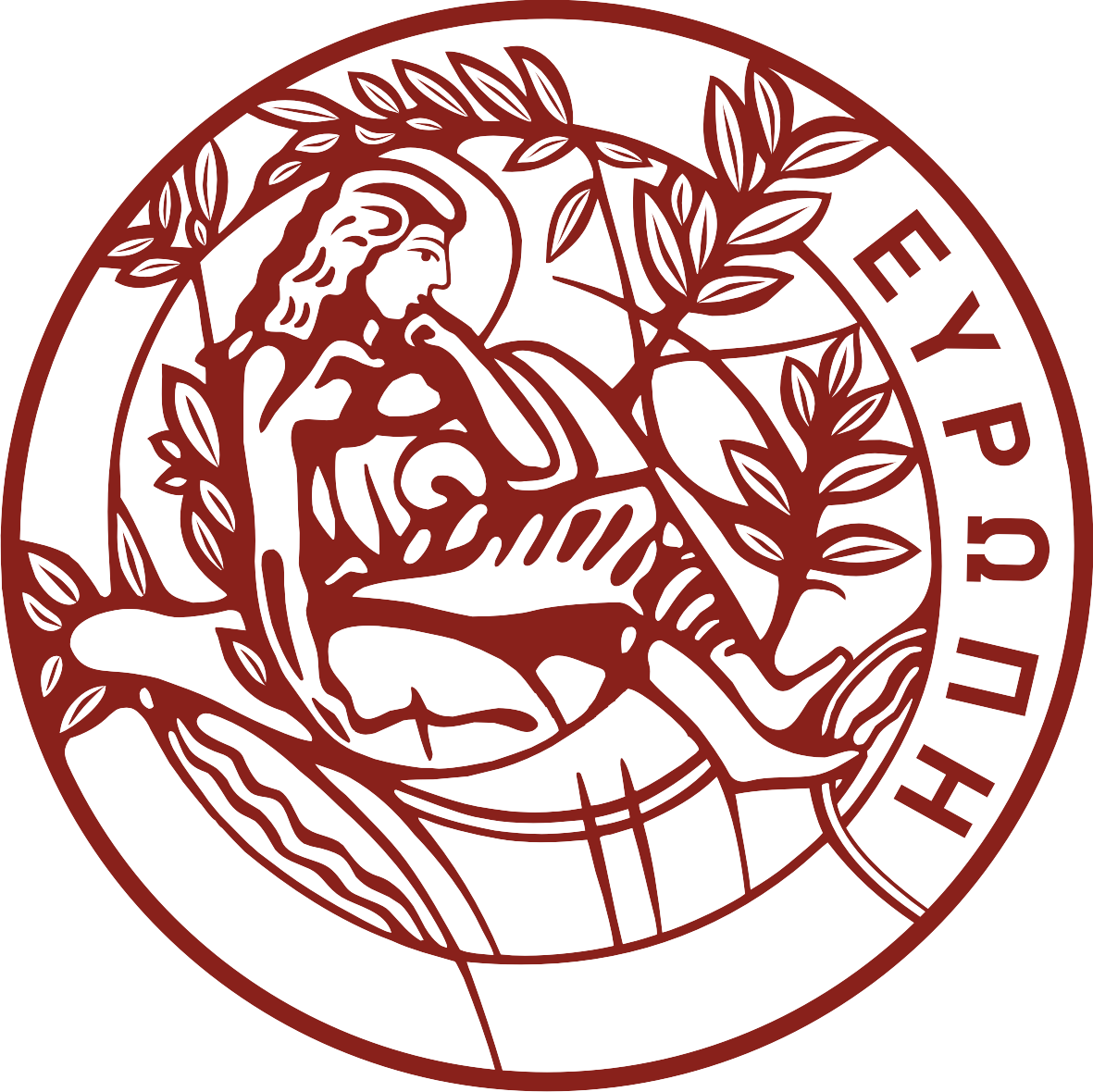Quality Targets of the Undergraduate Programme of Studies
Quality Policy of the Undergraduate Curriculum
Quality Policy of the Postgraduate Programme in Computer Science and Engineering
Department Objectives | Studies at the University of Crete | IT and the Department
The main objectives of the Programs of Studies of the Department are:
- High level and high quality studies, according to international standards.
- Conformity with contemporary views on information and communication technologies.
- Application-oriented courses, with particular emphasis on laboratory-driven education, as well as the formulation of an excellent scientific and engineering profile, achieved through the cultivation of inquisitive and creative thinking and the assimilation of basic research principles.
- Proper balance of depth and breadth.
- At the graduate level, specialization in areas of primary importance and first-rate research practice, in collaboration with the Foundation for Research and Technology, Hellas (FORTH).
Achieving the above goals is a fundamental concern of the Department, one which is feasible thanks to the high standards maintained by the Department's members, and the students’ active participation in its various activities.
Studies at the University of Crete
Undeniably, fine teaching should form an integral part of undergraduate experience. Our Teaching Staff have been firm advocates of this belief. They approach their discipline in a spirit of creative deconstruction as they strive to make sense of the vigorous international trends. They constantly draw on a range of relevant literature in order to verify their paradigms. Students are greatly encouraged to benefit from the Faculty’s profound understanding of Information Technology and their rich experience in the process and manner of research.
Beyond the undergraduate level, the Department boasts of an organized program of Graduate Studies. Students have the opportunity to be further instructed in the themes and the methods of computer science. They are persistently and arduously trained so as to cope with the challenges of structured systems in relation to the process of change. Postgraduate students have a choice between a Master’s Degree and a Doctoral Diploma, depending on whether they intend to work for the industry or the academic sector.
An additional profit can be gained from the significant collaborations that the Department has established with universities and institutions domestically and abroad. Most notably, the Institute of Computer Science, largely known as Foundation for Research and Technology, Hellas, is the first most important research center in Greece and it has progressed in parallel tracks with our Department. Both professors and students have the opportunity to share expertise with members of ICS-FORTH, thus acquiring valuable experience, and contributing in the technological progress of the country. We should not fail to mention that ICS-FORTH offers leading scholarships to its graduate students on an annual basis.
Last but not least, the Department offers its undergraduate students the excellent opportunity to spend one or two semesters at a fellow university under the auspices of the Socrates-Erasmus programme of the EU. The educational and cultural gains are apparent, and the students can be further inspired for an ambitious continuation of their studies and for a rewarding career pursuit.
Undoubtedly, our Department proposes a highly competitive curriculum. The effort and devoted work of its professors is manifested in the exemplary preparation and progress of the students. Ultimately, the Department’s high profile has demanded the recognition and respect of a host of influential universities, research centers and companies in Greece, Europe, and the US.
IT and the Department
Our Department claims that the study of Computer Science touches upon a multitude of technological and theoretical issues. New methods, tools, and practices are constantly emerging. Computer scientists feel the growing need to pause and reflect. It seems more crucial than ever to look closely into the fundamental themes of the discipline. Computer Architecture, Software Engineering, Systems Development, and Application Systems, all acquire a new dimension in the midst of the frantic transitions.
Naturally, all the dilemmas are examined in the light of the interface between the technical environment and the human context. Furthermore, the notion of Quality Teaching and Quality Research are endlessly redefined. Students are encouraged to benefit from the Department’s curriculum which binds innovation with rigorous methodology. The program of studies includes obligatory modules such as Thesis essay, Laboratory Practice, ad hoc Assignments, special courses in Pedagogic Training, and optional Practical Training via full-time work for a Greek or international organization. In this way, two imperative goals are achieved. Firstly, authoritative knowledge becomes increasingly explicit. Secondly, our graduates are inspired, informed and facilitated in order to reliably meet the requirements of academia and industry alike.



 Announcements
|
News
Announcements
|
News

